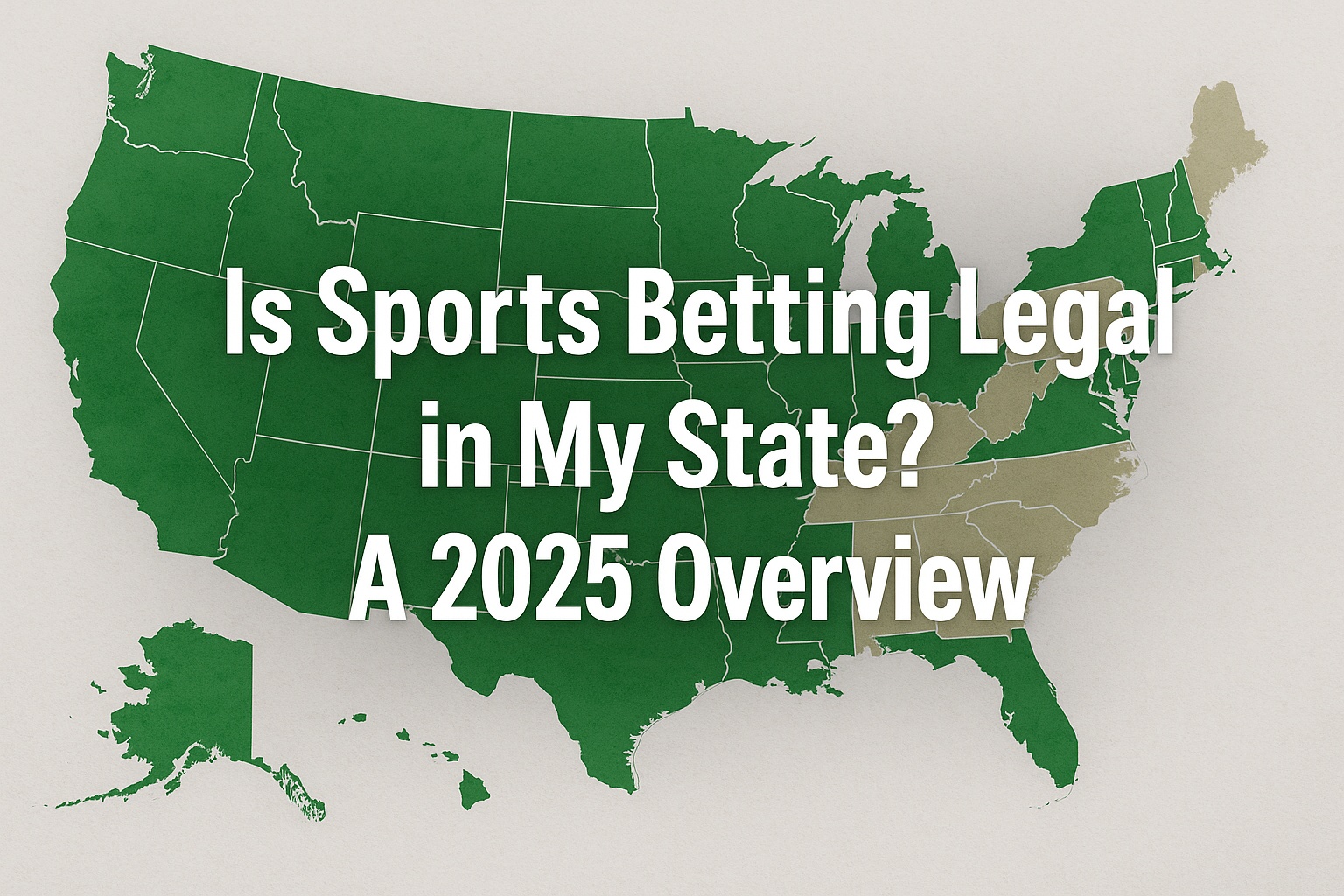Is Sports Betting Legal in My State? A 2025 Overview is the definitive guide for understanding whether you can place legal wagers where you live. Since the U.S. Supreme Court struck down the federal sports betting ban in 2018, each state has had the power to create its own laws—and the legal map keeps evolving.
Why Sports Betting Laws Vary by State
Unlike federal laws that apply across the entire country, sports betting in the United States is regulated at the state level. That means what’s legal in New Jersey might be illegal just across the border in South Carolina. Some states allow online betting, others limit it to casinos or retail sportsbooks, and a few still prohibit it altogether.
Each state sets its own rules regarding who can bet, where they can do it, and which operators are allowed to run sportsbooks. Licensing, taxation, and enforcement all happen within state borders. As a result, understanding the laws in your specific state is essential before placing any bets.
The Impact of PASPA Repeal
The turning point for U.S. sports betting came on May 14, 2018, when the Supreme Court struck down PASPA—the Professional and Amateur Sports Protection Act. PASPA had effectively banned sports betting in most states for over 25 years. Its repeal gave states full authority to legalize, regulate, or reject sports betting.
- Year repealed: 2018
- Who made the decision: Supreme Court of the United States (SCOTUS)
- Effect: Gave states full control over legalizing sports betting
- First movers: New Jersey, Pennsylvania, West Virginia
- Result: Over 35 states now allow some form of legal sports betting in 2025
2025 Sports Betting Legal Status by State
The table below highlights the current legal status of sports betting across select U.S. states in 2025. This list includes both online and retail availability, along with legal notes or pending changes. Be sure to check with your state’s gaming commission for real-time updates.
| State | Status | Notes |
|---|---|---|
| New Jersey | Legal – Online & Retail | One of the first adopters, highly active market |
| California | Not Legal | Failed ballot initiatives; remains unregulated |
| Florida | Pending Legal Action | Compact with Seminole Tribe under court review |
| New York | Legal – Online & Retail | Major tax revenue source for the state |
| Texas | Not Legal | No current legislation in place |
| Illinois | Legal – Online & Retail | Requires in-person registration at times |
| Nevada | Legal – Retail Only | Online betting limited to licensed apps |
| Massachusetts | Legal – Online & Retail | Launched fully regulated market in 2023 |
“We’re seeing constant shifts in state laws. What’s illegal in January may be fully regulated by December. Bettors must stay informed.” — Alex Carter, U.S. Gaming Law Analyst
Common Legal Grey Areas and Misconceptions
Even in 2025, many bettors misunderstand what is legal in their state—or assume that all betting apps are created equal. Here’s a breakdown of common misconceptions that could lead to legal or financial trouble:
- Offshore sportsbooks are not legal alternatives: Sites based outside the U.S. may accept American users but operate without U.S. regulation or consumer protections.
- VPN use doesn’t make betting legal: Spoofing your location to access another state’s sportsbook is a violation of most terms of service and state laws.
- Retail-only states block online betting: In states like Nevada, online bets are restricted unless placed through specific licensed mobile apps or at retail locations.
- Tribal gaming exemptions don’t always allow sports betting: Not all tribal casinos are authorized for sportsbook operations unless explicitly licensed under state compacts.
- “Free-to-play” sites aren’t a legal substitute: Social betting games may offer entertainment but don’t pay real winnings and don’t represent legal wagering.
How to Bet Legally and Safely
If you’re unsure how to stay on the right side of the law when placing bets, follow these steps to ensure you’re gambling responsibly and legally:
- Check your state’s official gaming website: They publish updated lists of licensed operators and legal channels.
- Register with a licensed sportsbook: Only use platforms that are approved by your state’s regulatory body.
- Verify your location: Legal operators use geolocation to confirm you’re physically within a legal betting state.
- Confirm age requirements: You must be at least 21 years old in most legal states.
- Avoid offshore or unverified apps: If a sportsbook doesn’t appear on your state’s licensed list, don’t use it.
FAQs
- Is sports betting legal in all U.S. states?
No. As of 2025, over 35 states have legalized some form of sports betting, but several states still prohibit or have no active legislation. - Can I use a VPN to place bets in a legal state?
No. Using a VPN to spoof your location violates sportsbook terms and may result in account suspension or legal issues. - What if I live in one state but travel to another where betting is legal?
You can legally place bets while physically present in a legal state, even if your home state prohibits it. - Is DraftKings or FanDuel legal in my state?
It depends. Both operate in multiple states, but availability varies based on local licensing. Always check your state’s approved operator list. - What’s the legal betting age?
Typically 21 years old, but some states allow 18+ depending on the operator and type of wager. - Are offshore sportsbooks safe to use?
No. They operate outside U.S. laws, offer no consumer protection, and can withhold funds or void bets without recourse.
Conclusion
Is Sports Betting Legal in My State? A 2025 Overview helps demystify where and how Americans can place legal sports wagers. Because each state controls its own rules, it’s essential to stay updated and informed before placing a bet—especially online.
Legal markets offer transparency, protections, and support responsible gambling practices. Whether you’re a casual bettor or serious strategist, following your state’s laws ensures a safer and more sustainable experience.
Ready to get started? First, confirm your state’s status, choose a licensed operator, and always bet within your means.





